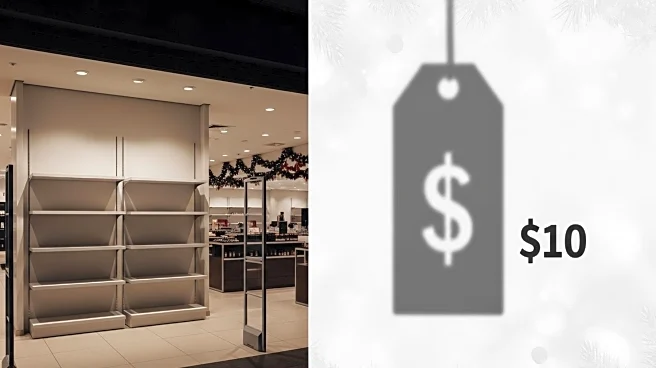What is the story about?
What's Happening?
Retailers are grappling with the impact of tariffs as the holiday season approaches. Many have been increasing prices to mitigate tariff-related costs, but this strategy is becoming more challenging as economic conditions affect consumer spending. Target and Walmart have expressed caution in raising prices, aiming to maintain their value proposition. Moody's Ratings report indicates that consumer spending growth is expected to remain lackluster through 2025, with recovery likely beginning in late 2026. The report highlights the divide between wealthier households spending more and lower-income households prioritizing essentials. Prices on luxury goods are rising, particularly in high-demand segments like handbags and denim.
Why It's Important?
The tariff impact on retailers is significant as they navigate economic challenges and consumer behavior shifts. The holiday season is a critical period for retail sales, and the ability to balance price increases with maintaining demand is crucial for protecting margins. The divide in consumer spending between income groups underscores the importance of understanding market dynamics and targeting strategies accordingly. The rise in luxury goods prices reflects the impact of tariffs and consumer demand, affecting brand positioning and competitive advantage.
What's Next?
Retailers will continue to monitor economic conditions and consumer sentiment as they prepare for the holiday season. Strategic pricing decisions will be crucial in maintaining competitiveness and driving sales. The impact of tariffs on consumer spending and market dynamics will be closely watched, with potential implications for future trade policies. Retailers catering to lower-income consumers may face additional challenges in maintaining demand amid rising prices.















